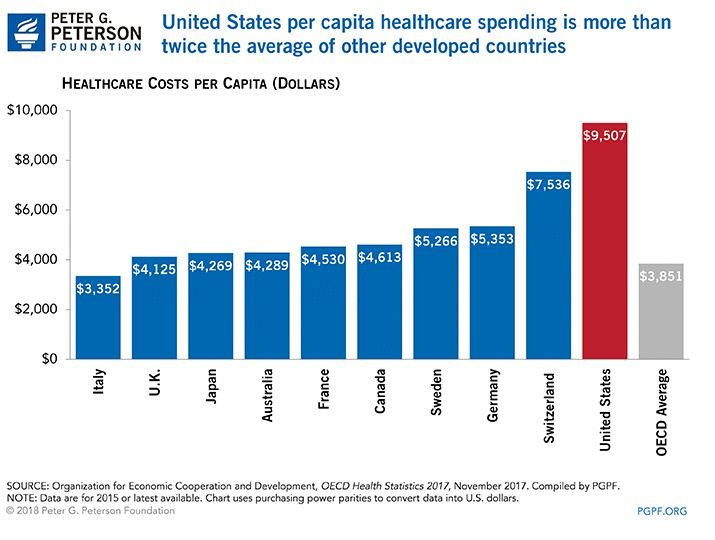It’s so important to find the right doctors for you and your family. Yes, doctors (plural). The normal practice today is to have one conventional doctor that you visit annually or as needed. However, it’s critical that you assemble a team of doctors and understand when to visit each one. I’ve said it before but I’ll say it again, thank goodness for conventional doctors. However, it’s so important to know when their care is needed, when you should seek alternate care, and when you need to take matters into your own hands. The entire purpose of this website is to help you shift your paradigm of health. What I’d like to stress is that it’s important to be adaptable. There are many different schools of thought when it comes to healthcare. You should survey the entire landscape. It’s easy to get stuck in the paradigm of “conventional medicine is best” because we live in a world where we’ve reaped the benefit of many modern luxuries and we’re wired to think that conventional medicine equals the most advanced and scientifically available treatments. This is sadly, far from true and is quite apparent when you take a step back and look at our country’s health statistics. Although we’re living in the most technologically advanced era we’ve ever known, there is still so much that we don’t know and so much that we do know but is still practiced despite information that proves it does more harm than good. That’s because we also live in an era of unprecedented corruption. Healthcare is a business. It makes BILLIONS for industries like pharmaceuticals, insurance, and medical devices. This ultimately leads to resistance in change and manipulative tactics in order to keep the cash cow mooing.
Part of the reason the healthcare model today has been so successful on a general population level is that it exploits human tendencies and weaknesses. It’s human nature to buy into devices or trends that allow us to continue living a lifestyle that affords us temporary highs and allows us to put ownership on someone else (I.e., doctors). Most of us grew up enchanted by this idea of modern medicine and technology that will “save” us. The truth is that even after decades of dedicated research, they’ve made very little progress in the conventional realm with their pharmaceutical approaches to combatting chronic diseases (ex. cancer or diabetes). When you elevate your overall health wisdom, you’re less susceptible to fads, trends, outdated schools of thought, and pressure to comply within the conventional model.
The healthcare model today and the paradigm that many people subscribe to is this: wait until you get sick or diseased, drug it or cut it out, and hope it goes away. To wrap your head around the inefficiencies of today’s healthcare, it helps to revisit history. In 1900 the top four causes of death were Tuberculosis, pneumonia, flu, and gastrointestinal infections.[1] Our conventional healthcare model developed to address these acute illnesses. As pharmaceutical companies started gaining political influence and money, the ship that steered this approach to healthcare gained massive momentum despite statistics that continued to suggest we have a major problem and need to change tactics. The result was the healthcare system today and it’s marriage to the pharmaceutical industry. Thanks to this, we still have the same approach to healthcare even though the leading causes of health-related deaths today are chronic diseases: heart disease being number one and cancer being number two.[2] Both of these can be prevented through a lifestyle approach (except for the estimated 5-10% of cancer cases which are truly genetic) but instead are still treated using the same acute illness approach that treats the condition using pharmaceuticals or surgery to control the symptoms, not address (or even acknowledge) the root cause.
With all of this in mind, here are some guidelines for which doctors to see and when:
Conventional doctors are great at crisis management. Once you’re already sick and you want to get your symptoms under control fast, it may be appropriate to go see your conventional doctor for a prescription or surgery. For an acute injury like an accident, you’ll also want to head to the nearest hospital. They’re good at treating these things because that’s what their schooling is centered around. Think of a conventional doctor as crisis care.
The second doctor you should assemble for your team is a functional medicine doctor. Ideally, you would have a third and fourth doctor: a naturopathic physician and a chiropractor. These three types of doctors practice true healthcare. Your functional medicine doctor can help you find the root cause of your symptoms and promote healing to reach optimal health using an integrative approach (both conventional and alternative treatments may be utilized). This is very similar to integrative doctors. I find that integrative doctors tend to have fancier equipment, are typically highly specialized, and hand you larger bills. This is just a personal observation though. To find a functional medicine doctor near you, I suggest browsing the directory for The Institute of Functional Medicine: www.ifm.org. A word of caution when it comes to functional medicine doctors: Some of them will sell you tests to identify deficiencies or dysfunction. This is a money maker for them. However, a lot of these tests are not rooted in sound science and many factors can contribute to a test outcome done on a specific day or at a specific time. Find a functional medicine doctor who aims to treat you holistically first and then test if you’re unable to address the root cause and need a more targeted approach.
A naturopathic doctor uses the power of nature to help aid your body in its natural healing process. Naturopaths are really great for focusing on prevention. Most people think naturopathic doctors are not covered under insurance. However, thanks to the Affordable Care Act they are often times covered depending on your state. Always check with your insurance company before visiting a practitioner. The fourth doctor I mention is a chiropractor. It’s important to support your nervous system and ensure there aren’t structural issues inhibiting its function. Many health insurance policies will also cover a set number of visits to the chiropractor each year. Other professions you may want to explore when you assemble your team are: herbalists, acupuncturists, and nutritionists.
You may have winced when I said chiropractor or even naturopath. Ever since Rockefeller waged a war on natural medicine in the early 1900s and sparked the “quack watch”, chiropractors and other forms of alternative medicine have gotten a bad rap. As I state in my Welcome article, we are sicker than we’ve ever been and pay more than any other country for healthcare*. Despite paying the most on healthcare, we rank last in terms of health outcomes compared to other developed nations. We have some of the highest infant mortality rates, the lowest life expectancy, and the highest levels of chronic disease.³

It’s obvious that we have an inefficient system. Rockefeller’s intervention did not make people healthier. It only made Rockefeller’s wallet (and many others to follow) fatter. Luckily in light of some alarming health trends, people are getting educated and natural healing methods are making a comeback. I like the analogy made by Dan Pardi founder of HumanOS.
Dan compares today’s most popular paradigm of health with the faults associated with space travel. Space travel is a visceral illustration of how powerful technology is. However, despite all this knowledge and the money spent on trying to counteract the known negative health consequences while in space, we still get loss of blood volume, a significant decrease in muscle mass, dysregulation of the immune system and reactivation of viruses. If you take the human body out of the original conditions that it evolved to operate under, things are going to break and function less than ideally. Dan continues by reminding us that we don’t need to leave the planet to be in an environment that causes us to live in a way that is unnatural. We’ve created that environment here on earth with all of our technologies and toxic byproducts to fuel our way of life. We’re not getting the sufficient natural factors today that are requisite for the healthful functioning of the human body. We need to get back to mimicking ancestral practices/way of life in order to promote true health and stop waiting for technology to “save” us.
Functional medicine doctors, naturopathic doctors, and chiropractors have extensive knowledge of your body’s own healing abilities and promote methods that aid your body in that process. Their schooling is not focused solely or at all on a pharmacological approach. For this reason, unless I have a life-threatening circumstance that requires immediate intervention, I will go see one of these doctors first and I recommend anyone else do the same. If you can only afford one alternate care doctor, go see a functional medicine doctor. They have the ability to practice integrative medicine and use the best of both worlds to treat your condition. Another note, a pediatrician is typically conventionally trained and you should also seek alternate opinions and care options for your baby/child too. Pediatric services are provided in most of the healthcare realms. I found alternative health doctors to be much more knowledgeable and helpful in aiding my child’s healthy development. Science takes a long time to trickle down to conventional practice. I’ve always found alternative doctors to be much more likely to use the latest science. Because of the way the system is set up, conventional doctors a) don’t have the time to do independent research, b) follow guidelines and standard of care protocols that are passed down from the AAP, AMA, FDA, CDC, etc., and c) have financial incentives tied to their current approach. Standard protocols originally existed for good reason. However, too much power/control in the hands of the few can quickly turn a good thing bad and, given the transparency and access to information the internet has afforded us, we can now make much more informed decisions and are less susceptible to charlatans. Sadly, conflicts of interest now abound in our health care agencies.
Sound expensive to see all these doctors? There are so many great resources out there to help you take ownership of your health. Being sick is expensive and it’s a burden on our economy. Take diabetes type 2 for example. From Kris Kresser’s book Unconventional Medicine he states, “The American Diabetics Association estimates that it costs $14,000 per year to care for each patient with type 2 diabetes. If the patient is diagnosed at age 40 and lives another 40 years, that’s a cost of more than half a million dollars to treat a single patient through his lifetime.” Being healthy is not expensive. I’ve heard people complain about the cost of healthy food like organic produce but you have to think of the cost as a long-term investment. At first, it may be expensive to get your health in order as you replace products with non-toxic options, purchase organic whole foods, purchase high-quality supplements, and upgrade various household items. However, maintaining your health should not result in significant expenditures if you’ve truly taken ownership. An initial visit to either a Functional Medicine Doctor or a Naturopathic Doctor is important to get you on the right track to living a truly preventative lifestyle or coming up with a treatment plan. I recommend first doing some of your own research so you know what questions to ask and already have an idea of how to start so your time can be spent on personalizing a prevention plan instead of on generalizations. Visit my Instagram page for regular postings on health summit events to get you started on your knowledge quest. Many of these summits feature numerous experts and are free to attend.
Now that you know which doctors to see for what and when, here are a few tips on how to find a good one. Just as with any profession, there are good doctors and bad doctors in every realm of health care.
Tip 1: Utilize the internet to do the initial vetting. If you have a specific ailment or complaint you’re looking to address, make sure their website specifies that as a service they offer. Check out reviews but remember, holistic doctors who practice true prevention are a threat to the pharmaceutical model. There are people out there whose only job it is to attack these people. So, keep a healthy dose of skepticism and try to identify sincere reviews.
Tip 2: Interview the prospective doctor. Call to set up an appointment to interview the doctor. This isn’t very common but I’ve done it and it was worth it! Come with lot’s of good questions and consider other things like: does he/she respect you? Is this person likable? Etc. You may also ask the receptionist a few questions to get a good feel for the provider before you make the time investment. I recommend interviewing the doctor for anyone who is need of a serious healing journey for a chronic condition. You’ll be working with that doctor for a long time. You need to know that you get along and that they’re knowledgable for your specific needs. Here is just one example of a question I personally use to ask the receptionist, the nurse, or the doctor (if possible) on the phone before I book.
- Do you typically prescribe antibiotics for ear infections, why or why not? I’m looking for an understanding of the importance of the microbiome here. Ear infections are not life-threatening and are typically viral. Subscribing antibiotics for them is reckless when there are effective, natural alternatives that won’t destroy this extremely important ecosystem within our body. It also tells me whether or not they do their own independent research and if they stay on top of scientific advancements. It also tells me they aren’t afraid to have the hard conversations with patients. Often times, uninformed patients or parents will ask for antibiotics or “anything” in order to help their child or relieve their own discomfort. This is the perfect time to re-educate the patient and discuss implications whether they like to hear it or not.
Tip 3: Ask your friends and family who share a similar health perspective for recommendations. Facebook groups are also great for this.
Thanks for reading and good luck!
*Expenditure on health care is correlated with economic development. We have more money in this country, therefore we spend more. However, when compared to countries with similar economic development such as the UK, you will see that the U.S. vastly exceeds their spending in health care (about twice as much) and we’re much sicker with a lower life expectancy.
[1] http://demography.cpc.unc.edu/2014/06/16/mortality-and-cause-of-death-1900-v-2010/
[2] https://www.cdc.gov/nchs/fastats/leading-causes-of-death.htm
[3] https://www.americashealthrankings.org/learn/reports/2016-annual-report/comparison-with-other-nationsJoin our list
Subscribe to our mailing list and get interesting stuff and updates to your email inbox.





Thanks for the great manual
Hello! I just would like to give a huge thumbs up for the great info you have here on this post. I will be coming back to your blog for more soon.
Hi! Glad to hear it! Thanks for visiting.
I like that you said it is normal to have one conventional doctor that you visit annually. My husband and I are thinking about moving to another city, and we are looking for advice to find a new doctor in our city. I will let him read your article to help him understand the importance of having a primary doctor to visit regularly.